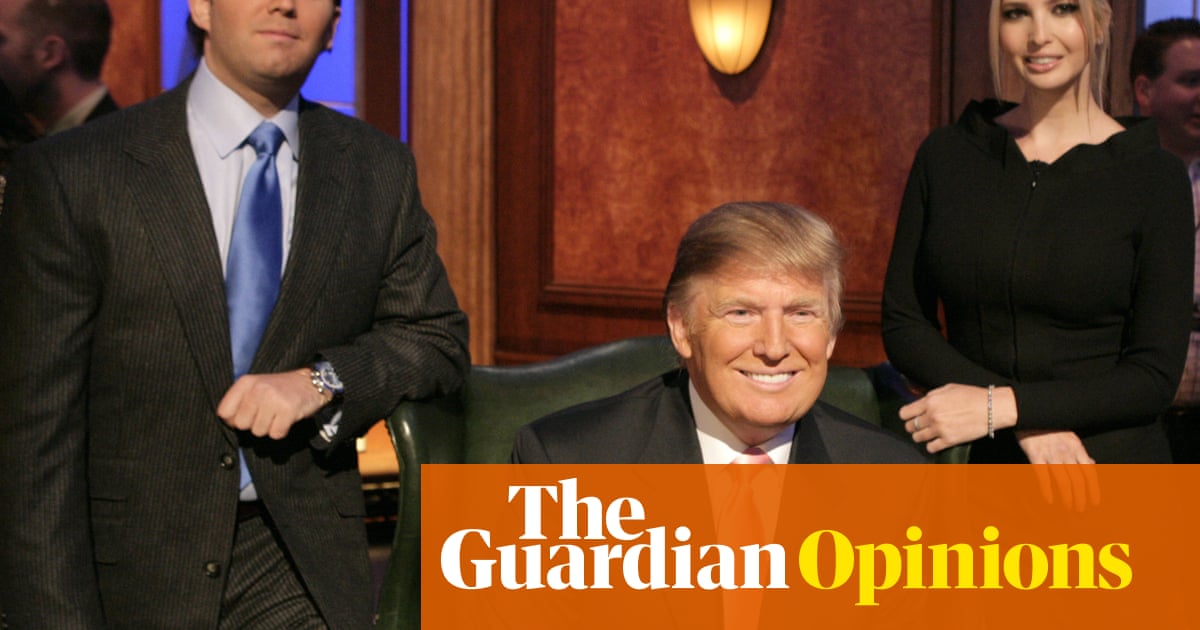Gina Chick, David Genat, Guy Sebastian, Poh Ling Yeow, Elon Musk andDonald Trumpdon’t have a lot in common – except that theyare the living embodiment of the essential truth of reality television: there can only be one winner.
Gina, David, Guy, Poh and countless others have turned their success at surviving, dancing, cooking and singing into brilliant careers probably beyond their wildest dreams.
Donald Trump applied the same single-mindedness to become the most powerful man in the world. For more than a decade he was in the living rooms of millions of Americans most weeks, picking winners, barking his judgment. Viewers did not see the squadrons of producers, camera operators, sound people, makeup artists, fixers and fawners. Truthiness trumps honesty as most of us understand the concept of accuracy.
As a nearly 80-year-old, DJT has instinctively absorbed the lessons of television all his life. While others struggled to make sense of communications scholar Marshall McLuhan’s theory that “the medium is the message”, he lived it. He strove to be an influencer before the term was invented; he was, and continues to be, theultimate product placement. The sneers of others fed him.
For all the talk about the power of social media, Elon Musk, learned at his expense that while his platform is great for proclamations, self-promotion and advertising, its narrative power still does not match the ingrained habits of television storytelling. “I regret some of my posts about President @realDonaldTrump last week. They went too far,” he posted, waving a white flag on X.
Meanwhile, the rest of us nodded sagely, we knew this would happen, pass the popcorn, enjoy the show.
Except this is not a show, even though the logic of television we have all grown up with encourages us to think it is. The man at its centre has the capacity, literally, to destroy the world.
This fact that no doubt lingered in the minds of other world leaders as he made a typically attention-winning departure from the G7 Canadian summit last week. Hequickly slapped down the French president, Emmanuel Macron, who with typical candour, suggested the president had left to broker peace in the Middle East.
Like all stars, DJT also has an enormous capacity to charm. Jeffrey Goldberg, the editor of the Atlantic who did enormous (temporary) damage to the new regime when he revealed he had been included in a classified group chat on Signal organised by Mike Waltz, who not long afterwards ceased to be the president’s national security adviser. Goldberg describes a subsequent meeting in thegilded Oval Office: “What I found on this particular meeting was a Trump who was low-key, attentive and eager to convince us that he is good at his job and good for the country. It isn’t easy to escape the tractor beam of his charisma, but somehow we managed.”
While a young DJT was absorbing the lessons of the age of television in midtown Manhattan, 50 blocks south, Neil Postman, a brilliant scholar at New York University, feared where this new manufactured reality might lead. In his erudite, yet snappily titled treatise, Amusing Ourselves to Death, Postman described the way the methods of television had transformed, and in his mind debased, the public sphere. Entertainment and emotion prevail; the worst tendencies in human nature pandered to; truthiness is enough.
Postman had little objection to television as entertainment, what worried him was when these methods and rituals were also adopted in news and current affairs, in the serious programs that provide the information that inform big decisions. As we would say now, nuance and complexity are lost.
He turned time and again to Aldous Huxley to make sense of what he feared was unfolding. “He was trying to tell us that what afflicted the people in Brave New World was not that they were laughing instead of thinking, but that they did not know what they were laughing about and why they had stopped thinking.”
We are the poorer for not knowing what Postman would make of this moment. He died a year before the first season of The Apprentice went to air in 2004, with “decent ratings and mocking reviews”. DJT took an elevator 21 floors down to the pretend boardroom on the fourth floor of Trump Tower, where contestants who had been set tasks to rescue his failing enterprises awaited his judgment.
As Emily Nussbaum documents in Cue the Sun, at that point no one understood how he would use the platform as a stepping stone to his grander ambition. When he did, one of the early apprentices urged voters to look beyond the artifice of television and recognise the risk.
Celebrity was transformed into a vocation. The real world a B-roll backdrop.
Australian networks were quick to adopt the formats of reality television, in the process creating some of the best in the genre. Our Housewives of … are considered some of the greatest, and Alone has restored a lost sense of authenticity.
Despite Pauline Hanson dancing with the stars, there is still a line between public life and entertainment. But it is getting fuzzier as the attention seeking demands of the contemporary online media environment reward froth and emotion more than substance. Preserving this distinction between real and make-believe is more important than ever.
Julianne Schultz is the author of The Idea of Australia, the co-editor ofFirst Things First (Griffith Review)and the librettist of the multi-award-winning opera Black River
